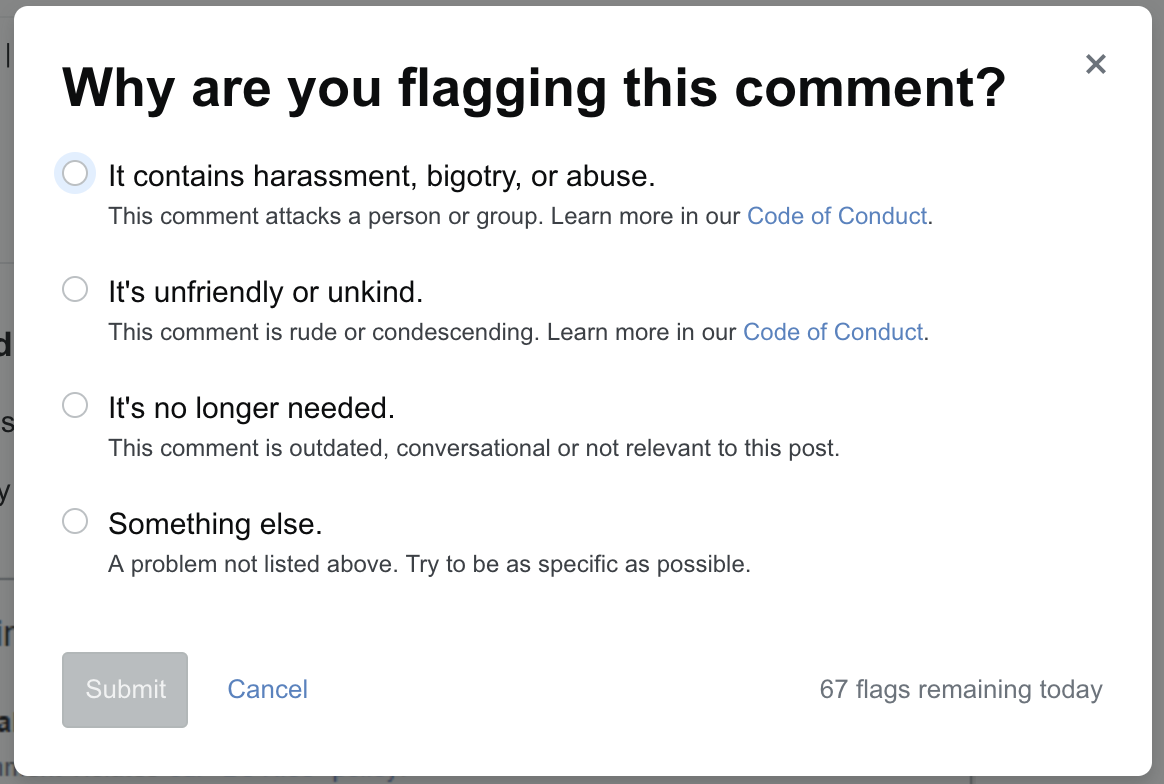Commenting is one of the unsung heroes of Stack Exchange. The help center suggestions that you should submit a comment if you want to:
- Request clarification from the author;
- Leave constructive criticism that guides the author in improving the post;
- Add relevant but minor or transient information to a post (e.g. a link to a related question, or an alert to the author that the question has been updated).
These are all essential for coordinating the creation of useful questions and answers, but originally comments were not part of the design for this system! During the beta period, it was observed that, without a way to annotate or discuss specific posts, answers became noisy and tangential. Therefore, a separate space was carved out for this purpose below each post, leaving answers free for content that, y'know, actually tries to answer the question.
This created a problem, however: how do we expose useful comments inline with answers without adding back the same amount of noise comments were created to alleviate? The solution was to pick off the 5 comments deemed most-useful by the voters. This simple strategy proved to be quite durable, working admirably in most common cases - but it suffers from a few drawbacks:
- Comments can become obsolete, addressing issues or concerns long ago addressed via edits to the post itself.
- Those one-liner contests Jeff alluded to don't always produce results as charming and witty as one might like.
- With the addition of comment replies and real-time notifications, comments can be used for casual conversation and debate - fun and perhaps even enlightening for those involved, noise for those just looking for an answer.
Thus the need for comment moderation. This involves three groups of people:
- The authors of the comments themselves can clean up after they're done, if they so desire.
- Privileged users can flag comments in response to the issues noted above, bringing them to the attention of the moderators. (They can also vote on comments, controlling to a degree which ones are shown)
- Moderators can remove individual comments or entire comment threads, move comments to chat, and even lock posts if comments are getting unruly.
This raises several questions, which I'll try to address below:
- When should I delete my own comment?
- When should I flag a comment?
- When should moderators delete comments?
- When should moderators move comments to chat?
- When should moderators edit comments?
These guidelines are based on the authors' experience moderating comments on various sites. Individual communities, particularly on meta sites, may benefit from additional guidelines - this guide is intended as a baseline.


